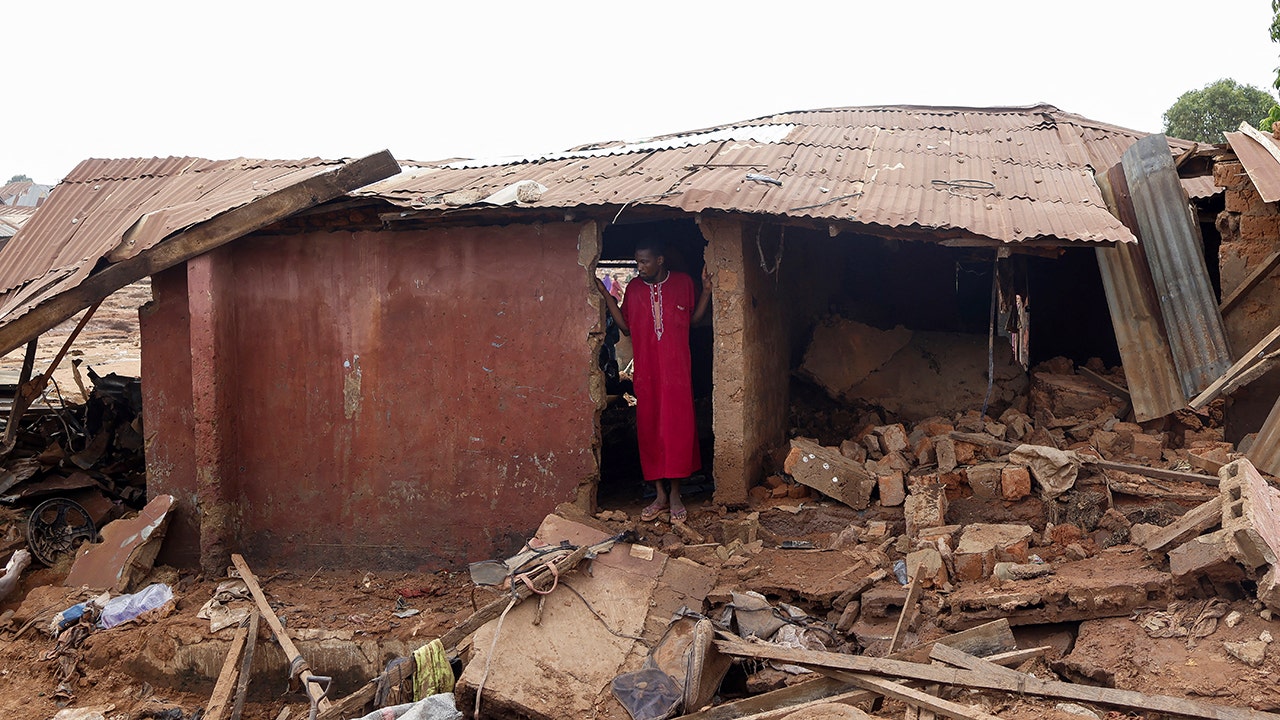Nigeria flooding kills at least 111 in northern market town after torrential rain

Torrents of predawn rain wreaked havoc in the market town of Mokwa, Nigeria, claiming the lives of at least 111 people. The northern Nigerian town, located more than 180 miles west of the capital city of Abuja, was inundated with heavy rainfall, leading to devastating flooding. The Nigerian Hydrological Services Agency indicated that the death toll was likely to rise as rescue and recovery efforts continued.
The region has been grappling with the effects of climate change, experiencing prolonged dry spells followed by excessive rainfall during the brief wet season. This unpredictable weather pattern has exacerbated flooding in communities across northern Nigeria, including Mokwa. In the aftermath of the deluge, videos and photos circulated on social media showed neighborhoods submerged in water, with residents wading through waist-deep floods to salvage belongings or aid others in need.
Mokwa, a significant trading hub where farmers from the north sell their produce to traders from the south, was severely impacted by the flooding. The floodwaters engulfed homes and businesses, leaving a trail of destruction in their wake. Kazeem Muhammed, a resident of Mokwa, lamented the loss of lives and property, emphasizing the devastation inflicted on the community.
According to Ibrahim Audu Husseini, a spokesperson for the Niger state emergency agency, the confirmed death toll of 111 was expected to rise as more bodies were being recovered. The town of Mokwa, known for its agricultural trade, faced an unprecedented crisis that underscored the urgent need for flood control measures and infrastructure improvements.
Aliki Musa, a community leader in Mokwa, remarked on the unusual nature of the flooding, describing it as almost mystical in its sporadic occurrence. The seasonal nature of the floods, while infrequent, posed a significant threat to the livelihoods and well-being of residents in the area. Jibril Muregi, chairman of the Mokwa local government area, highlighted the necessity of implementing flood-control mechanisms to mitigate future risks and safeguard lives and property.
The recent flooding in Mokwa echoed a similar catastrophe in Maiduguri, where torrential rains and a dam collapse led to severe flooding and loss of life. The humanitarian crisis exacerbated by the flooding compounded the challenges faced by communities already grappling with the Boko Haram insurgency in northeastern Nigeria.
As authorities and residents grappled with the aftermath of the devastating floods, the need for coordinated response efforts and long-term resilience planning became increasingly apparent. The tragic events in Mokwa served as a stark reminder of the vulnerability of communities to the impacts of climate change and the imperative of proactive measures to address environmental risks.




